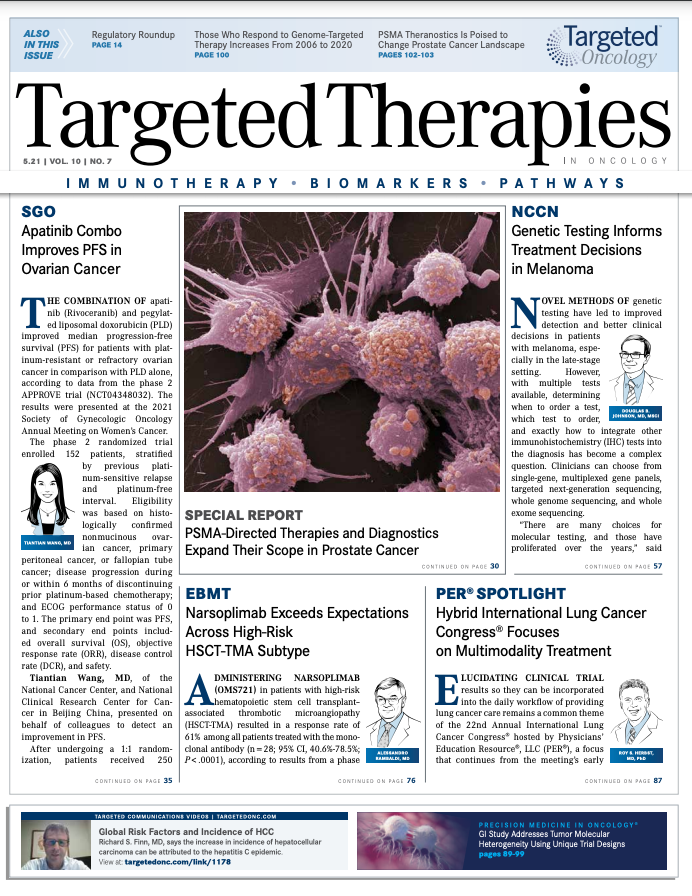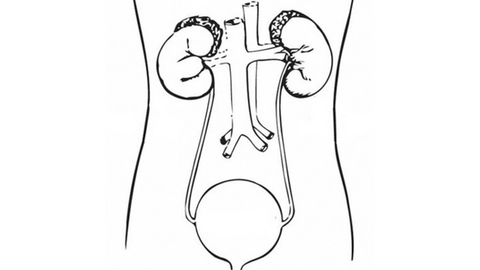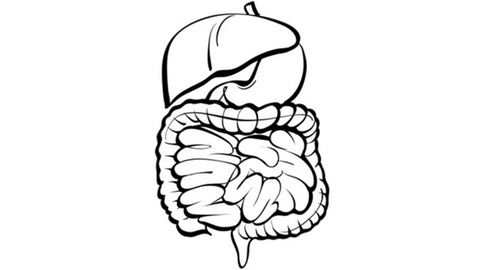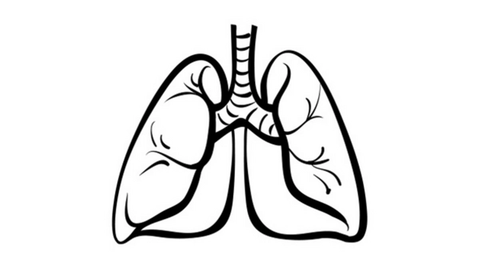Urothelial Cancer Guidelines Are Updated to Include Immune Checkpoint Inhibitors
Immunotherapies are now accepted treatments in the maintenance and second-line settings for patients with metastatic urothelial cancer and in the setting of superficial UC–carcinoma in situ with prior intravesical therapy, according to updated NCCN guidelines
Arlene O. Siefker-Radtke, MD

Immunotherapies are now accepted treatments in the maintenance and second-line settings for patients with metastatic urothelial cancer (UC) and in the setting of superficial UC–carcinoma in situ (CIS) with prior intravesical therapy, according to updated National Comprehensive Cancer Network (NCCN) guidelines.1
Version 1.2021 of the guidelines lists avelumab (Bavencio) as a category 1 preferred maintenance option for patients with cisplatin-eligible and cisplatin-ineligible locally advanced or metastatic (stage IV) urothelial cancer. The inclusion is based on data demonstrating an overall survival (OS) advantage to avelumab maintenance plus best supportive care (BSC) in patients with advanced UC who had not progressed on frontline platinum therapy compared with BSC alone in the phase 3 JAVELIN Bladder 100 trial (NCT02603432),2 explained Arlene O. Siefker-Radtke, MD, in a presentation during the National Comprehensive Cancer Network 2021 Virtual Annual Conference. In JAVELIN Bladder 100, the addition of avelumab to BSC as maintenance improved the median OS from 14.3 months to 21.4 months, corresponding to a significant 31% reduction in the risk of death (HR, 0.69; 95% CI, 0.56-0.86; P =.001).
“Patients who had progressed prior to a 4-week window of starting maintenance avelumab were not included on this trial, so this really looked at patients who had a good response or evidence of benefit to frontline chemotherapy,” said Siefker-Radtke, a professor in the Department of Genitourinary Medical Oncology at The University of Texas MD Anderson Cancer Center. JAVELIN Bladder 100 did not allow for crossover to immunotherapy at the time of progression.
Based on these data, the FDA approved avelumab in June 2020 for the maintenance treatment of patients with locally advanced or metastatic UC that has not progressed on first-line platinum-containing chemotherapy.3
With the updated NCCN guidelines, patients who have had cisplatin-based or dose-dense methotrexate, vinblastine, doxorubicin, and cisplatin chemotherapy who have stable disease or better may receive maintenance avelumab until progressive disease. This is also recommended for cisplatin-ineligible patients who received gemcitabine and carboplatin.
Additionally, atezolizumab (Tecentriq) and pembrolizumab (Keytruda) are options for patients whose tumors express PD-L1 or who are not eligible for platinum-based chemotherapy regardless of PD-L1 expression.
In a phase 2 study, maintenance pembrolizumab following frontline platinum-based chemotherapy improved progression-free survival to 5.4 months, compared with 3.0 months with placebo (HR, 0.65; log-rank P =.0361) in patients with stable or advanced UC.4 However, the regimen failed to achieve significance on the end point of median OS (P =.7477), although median OS was numerically superior in the pembrolizumab arm at 22.0 months vs 18.7 months with placebo. Only 108 patients were randomized, so the trial was underpowered to detect a significant difference in median OS, Siefker-Radtke noted.
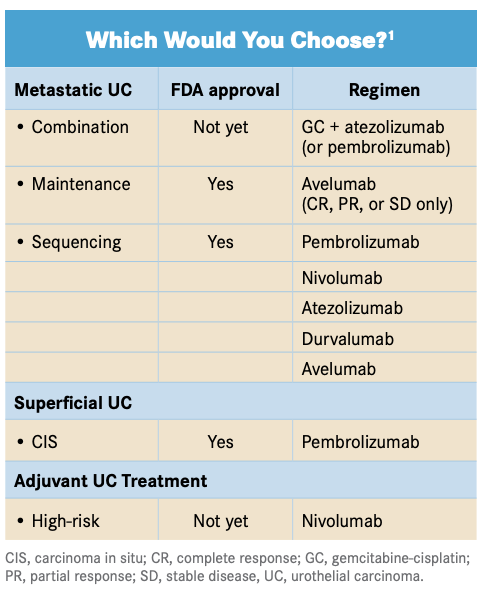
She then addressed the use of immunotherapy as part of a sequencing strategy in advanced UC. In patients with locally advanced or metastatic UC, pembrolizumab is now considered the preferred secoThis evidence consists of data from the phase 3 KEYNOTE-045 trial (NCT02256436) in which 542 patients with advanced UC that recurred or progressed after platinum-based chemotherapy were treated with either pembrolizumab or investigator’s choice of single-agent chemotherapy (paclitaxel, docetaxel, or vinflunine). The median OS improved from 7.4 months in the chemotherapy arm to 10.3 months in the pembrolizumab arm (HR, 0.73; 95% CI, 0.59-0.91; P = .002).5 There were also fewer treatment-related adverse events in the immunotherapy arm vs the chemotherapy arm (affecting 15.0% vs 49.4% of patients, respectively).
In the second-line setting, the guidelines include atezolizumab (Tecentriq), nivolumab (Opdivo), and avelumab as alternative preferred checkpoint inhibitors, as well as erdafitinib (Balversa), specifically in patients with susceptible FGFR3 or FGFR2 alterations.
Durvalumab (Imfinzi) had been included as a second-line strategy, but the PD-L1 inhibitor was voluntarily withdrawn for this indication. It had not met either of its coprimary end points of OS compared between the durvalumabalone and chemotherapy groups in PD-L1–high patients and between the durvalumab/tremelimumab and chemotherapy groups in the intent-totreat (ITT) population in the frontline setting in the DANUBE trial.6
The updated NCCN guidelines also list Bacillus Calmette-Guerin (BCG)-unresponsive, high-risk, non–muscle-invasive bladder cancer as an indication for pembrolizumab, in patients who are ineligible for or have elected not to undergo cystectomy. The rationale for this indication comes from the KEYNOTE-057 study (NCT02625961), in which pembrolizumab administered for up to 2 years induced a complete response (CR) rate of 40.6% and a median duration of CR of 16.2 months in patients with BCG-unresponsive CIS with or without papillary tumors (TABLE).7 The FDA approved pembrolizumab for this indication in January 2020.8
In the adjuvant setting, immunotherapy is not yet incorporated into the guidelines nor is it FDA approved. A decision is pending OS results from the CheckMate 274 study, in which nivolumab improved disease-free survival versus placebo in patients with high-risk muscle-invasive UC at 21.0 months compared with 10.9 months for the placebo arm in the ITT population (HR, 0.70; 98.31% CI, 0.54-0.89; P <.001).9
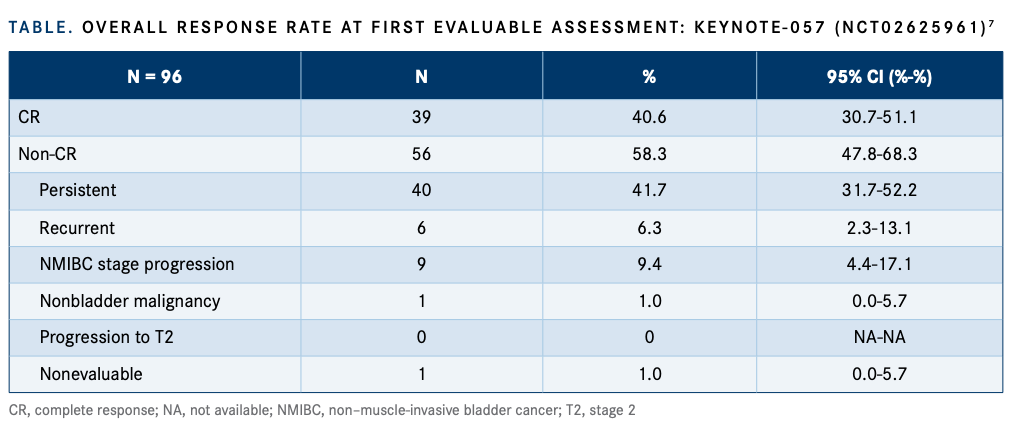
References:
1. Siefker-Radtke AO. New settings for immune checkpoint inhibitors in urothelial bladder cancer. Presented at: 2021 National Comprehensive Cancer Network Virtual Annual Conference; March 18-20; 2021; virtual.
2. Powles T, Park SH, Voog E, et al. Avelumab maintenance therapy for advanced or metastatic urothelial carcinoma. N Engl J Med. 2020;383(13):1218-1230. doi:10.1056/NEJMoa2002788
3. FDA approves avelumab for urothelial carcinoma maintenance treatment. FDA. July 1, 2020. Accessed April 15, 2021. https://bit.ly/3uRYzq5
4. Galsky MD, Mortazavi A, Milowsky MI, et al. Randomized double-blind phase II study of maintenance pembrolizumab versus placebo after firstline chemotherapy in patients with metastatic urothelial cancer. J Clin Oncol. 2020;38(16):1797-1806. doi:10.1200/JCO.19.03091
5. Bellmunt J, de Wit R, Vaughn DJ, et al; KEYNOTE-045 Investigators. Pembrolizumab as second-line therapy for advanced urothelial carcinoma. N Engl J Med. 2017;376(11):1015-1026. doi:10.1056/NEJMoa1613683
6. owles T, van der Heijden MS, Castellano D, et al; DANUBE Study Investigators. Durvalumab alone and durvalumab plus tremelimumab versus chemotherapy in previously untreated patients with unresectable, locally advanced or metastatic urothelial carcinoma (DANUBE): a randomized, open-label, multicentre, phase 3 trial. Lancet Oncol. 2020,21(12):1574- 1588. doi:10.1016/S1470-2045(20)30541-6
7. Balar AV, Kamat AM, Kulkarni GS, et al. Pembrolizumab (pembro) for the treatment of patients with Bacillus Calmette-Guérin (BCG) unresponsive, high-risk (HR) non–muscle-invasive bladder cancer (NMIBC): over two years follow-up of KEYNOTE-057. J Clin Oncol. 2020;38(15 Suppl):abstr 5041. doi:10.1200/JCO.2020.38.15_suppl.5041
8. . FDA approves pembrolizumab for BCG-unresponsive, high-risk non-muscle invasive bladder cancer. January 8, 2020. Accessed April 15, 2021. https://bit.ly/2RCADca
9. Bajorin DF, Witjes JA, Gschwend J, et al. First results from the phase 3 CheckMate 274 trial of adjuvant nivolumab vs placebo in patients who underwent radical surgery for high-risk muscle-invasive urothelial carcinoma (MIUC). J Clin Oncol. 2021;39(6 Suppl):abstr 391. doi:10.1200/ JCO.2021.39.6_suppl.391
